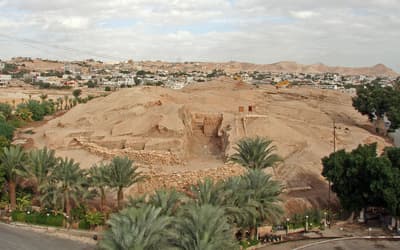
The Walls of Jericho: Dating Joshua’s Conquest of Canaan
pp. 1–8 • Anne Habermehl
Showing that Joshua’s wall was the one destroyed at the end of the Early Bronze IIIB period and Hiel’s wall dates to the Middle Bronze I.
MLACopy
APA
Chicago
${currentCitationStyle} Citation Copied to Clipboard


pp. 1–8 • Anne Habermehl
Showing that Joshua’s wall was the one destroyed at the end of the Early Bronze IIIB period and Hiel’s wall dates to the Middle Bronze I.

pp. 9–20 • Richard Overman
This paper proposes biblically based scientific philosophies as well as providing suggested mechanisms for the development of a bible-based scientific model for the four major scientific communities.

pp. 21–24 • A. John M. Osgood
This paper maintains that we all want a good correlation of the archaeological record with the Bible, but Griffth and White’s ARJ papers of 2022–3 are not the way to achieve it.

pp. 25–26 • Robert M. Porter
This paper asserts that it is not possible to run the Egyptian Old and Middle Kingdoms in parallel and that the date of the Trojan War is not necessarily that provided by ancient Greek historians.

pp. 27–41 • Kenneth C. Griffith , et. al.
While we will answer the objections to our 2022 and 2023 papers here in a cursory manner, most of them will be thoroughly handled in the appropriate papers in the series.

pp. 43–61 • Marshall Jordan
The study presented here uses a reconstruction of a Y chromosome tree based on the biblical assumption that all humans have descended from Noah.
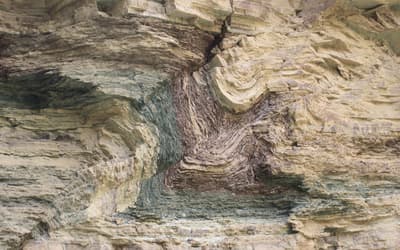
pp. 63–192 • Dr. Andrew A. Snelling
The Bright Angel Formation beds easily responded to soft-sediment deformation to form the smooth bending in the Whitmore Helipad fold.

pp. 193–214 • Dr. Danny R. Faulkner
Creationists have often used the 2nd law of thermodynamics to criticize naturalistic origins, but they have not always properly treated the subject.
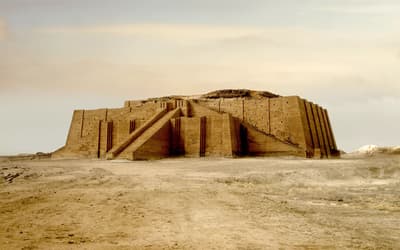
pp. 215–216 • A. John M. Osgood
This is the first of a three-part series. This first paper discusses Habermehl’s 2011 paper, “Where in the World is the Tower of Babel?”

pp. 217–219 • Anne Habermehl
In this second of a three-part series, Habermehl further discusses the placement of the Exodus in Egyptian history and methodology.

pp. 221–222 • A. John M. Osgood
In this third of a three-part series, there is further discussion of Habermehl’s 2024 paper on Jericho.
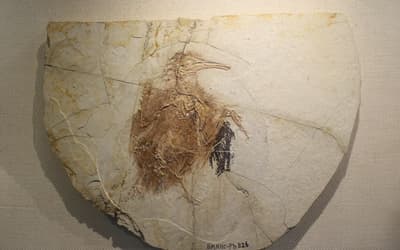
pp. 223–309 • Reinhard Junker
The putative descent of birds from dinosaurs has become established as one of the most popular evolutionary transitions.

pp. 311–315 • A. John M. Osgood
Hezekiah’s rule is one which has been associated with significant chronological controversy, specifically a claimed 12-year gap.

pp. 317–352 • Joel Leineweber
The author performs a systematic, comparative anatomy of both form and function to show whether Microraptor would have appeared avian or reptilian.
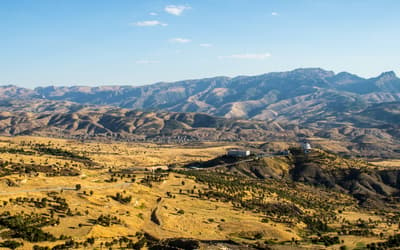
pp. 353–357 • Anne Habermehl
This is the first of two papers published today on the ARJ site in a previous series discussing methodology for locating the landing of Noah’s Ark.
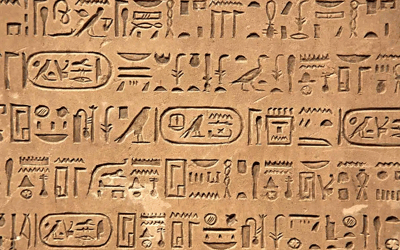
pp. 359–368 • James Powell
At this point, I would like to stress to my colleague that my ARJ paper was about deciphering the primarily pictographic code concerning a navel in ancient thought.

pp. 369–385 • Marshall Jordan
The low content of C-14 in fossil fuels implies that the atmospheric C-14 level in the pre-Flood world was less than 1% of today’s level, in contrast to the uniformitarian assumption.

pp. 387–398 • Justin Singleton
This study will focus on presenting examples of the failure of Mitzraim, son of Ham, and of Shem to reproduce their father’s religious belief to their extending generations.

pp. 399–402 • Dr. Jerry Bergman
Scientists behind the skeleton/organ collections firmly believed in human evolution. They were collecting specimens of “inferior races” to prove evolution, but the material did not support evolution.

pp. 403–405 • Anne Habermehl
Anne Habermehl argues that archaeology is not the only discipline that needs to be applied in determining much that happened in history. A. John M. Osgood responds in a second article.

pp. 407–408 • A. John M. Osgood
Osgood responds to Habermehl’s objection of his concept and rejection of some archaeological findings.

pp. 409–419 • A. John M. Osgood
A recent paper by Robert M. Porter (2022) demands a reasonable reply. Pottery and archaeological stratigraphy in no way contradict a partial overlap of Dynasty 6 and Dynasty 12 in Egyptian history.

pp. 421–425 • Dr. Jerry Bergman
Field research evaluating Darwin’s sexual selection of beauty beliefs has concluded “that Darwin was wrong.”

pp. 427–433 • Dr. Phillip W. Dennis
Dr. Dennis discusses Dr. Lisle’s anisotropic synchrony convention in regards to the light travel time problem.

pp. 435–438 • Kenneth C. Griffith , et. al.
Kenneth C. Griffith and Darrell K. White weigh in on the location of the Tower of Babel in response to Habermehl’s and Osgood’s papers.

pp. 439–441 • Anne Habermehl
Anne Habermehl responds to John Osgood’s critique of her Tower of Babel paper.

pp. 443–444 • Anne Habermehl
Anne Habermehl responds to John Osgood’s critique of her Walls of Jericho paper.

pp. 445–457 • Dr. Jason Lisle
New data is consistent with biblical creation, not the big bang.

pp. 459–464 • Dr. Jerry Bergman
Little to no physical evidence exists of the theorized gradual transformation from some proposed common ancestor of mollusks.

pp. 465–469 • Anne Habermehl
Anne Habermehl claims that the Griffith and White’s series, Chronological Framework of Ancient History, reinforces the longer Septuagint timeline.

pp. 471–478 • Kenneth C. Griffith , et. al.
Griffith and White respond to Habermehl’s criticisms by demonstrating a model that integrates geological, archaeological, and historical records with the Ussher-Jones Chronology.

pp. 479–611 • Dr. Andrew A. Snelling
Because the Muav beds were still soft less than a year after rapid burial, they formed the bending in the Matkatamiba fold. Thus, nearly 500 million years of “geologic history” can be eliminated.

pp. 613–619 • Matthew Cserhati
This study demonstrated how chloroplast genomes can be used to classify species into holobaramins.

pp. 621–635 • A. John M. Osgood
This discussion presents a new arrangement, a different model of the XIIIth Dynasty for discussion.

pp. 637–645 • Oliver Di Martino , et. al.
Past plant molecular baraminology studies analyzed the chloroplast genome of lilies and compared hybridization data in gourds. This study analyzes chloroplast and mitochondrial genomes in myrtles.

pp. 647–667 • Eric J. Tweedy
The author calls some of the conclusions in an earlier series, “Chronological Framework of Ancient History,” into question.

pp. 669–676 • Kenneth C. Griffith , et. al.
The authors of the series, “Chronological Framework of Ancient History” respond to critiques.

pp. 677–707 • Nicholas Rush , et. al.
Analysis of the skull of CMP 279 offers valuable insights into the species Allosaurus fragilis, and further research promises to yield even more valuable information.

pp. 709–738 • Dr. Phillip W. Dennis
Dr. Dennis responds to Dr. Lisle’s arguments on the speed of light, suggesting a different interpretation of relativity.

pp. 739–761 • James E. Patrick , et. al.
The thesis of this two-part paper is that the Genesis “fountains of the great deep” carries powerful theological and geological implications not to be ignored.

pp. 763–783 • Eric J. Tweedy
Evaluation of Oard’s Ice Age model, comparing Masoretic and Septuagint timelines and using historical references on Babel and northern Europe’s colonization to assess the 700-year duration.

pp. 785–789 • Luke A. Barnes
Luke Barnes critiques Jason Lisle’s “Doppler Model” of 2024.